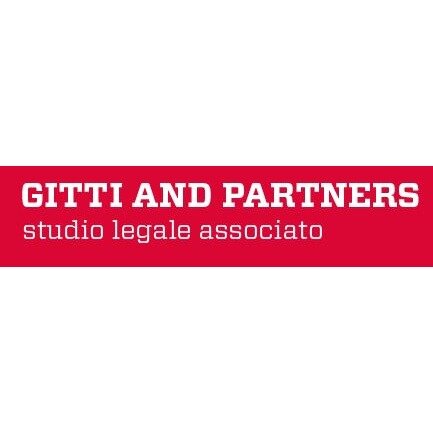Best Equity Capital Markets Lawyers in Italy
Share your needs with us, get contacted by law firms.
Free. Takes 2 min.
Or refine your search by selecting a city:
List of the best lawyers in Italy
About Equity Capital Markets Law in Italy
Equity Capital Markets (ECM) in Italy refer to the segment of financial markets where companies raise capital by issuing shares or other equity instruments. These markets provide businesses with essential access to funds for growth, innovation, and expansion. In Italy, ECM transactions primarily occur through public offerings, private placements, rights issues, and initial public offerings (IPOs) on regulated markets such as the Borsa Italiana. The legal framework governing ECM in Italy is complex, integrating both national laws and European Union regulations to ensure transparency, investor protection, and market integrity.
Why You May Need a Lawyer
Engaging in Equity Capital Markets transactions in Italy involves various legal and regulatory challenges. You may require legal assistance in situations such as:
- Preparing for or executing an Initial Public Offering (IPO)
- Structuring a rights issue or share capital increase
- Complying with ongoing disclosure and reporting obligations as a listed company
- Managing cross-border or foreign investment transactions
- Addressing regulatory investigations or enforcement actions by Italian or EU authorities
- Drafting and reviewing prospectuses, shareholder agreements, and other legal documentation
- Handling mergers, acquisitions, or delistings involving Italian-listed companies
A lawyer specializing in ECM law can help you navigate these processes, mitigate risks, comply with local and EU regulations, and protect your interests during complex transactions.
Local Laws Overview
The legal landscape of Equity Capital Markets in Italy is primarily shaped by the following laws and regulations:
- TUF (Testo Unico della Finanza) - Legislative Decree No. 58/1998: The Consolidated Law on Finance provides the general regulatory framework for financial markets and securities offerings in Italy.
- Consob Regulations: The Italian Securities and Exchange Commission (Consob) issues rules on prospectuses, public offerings, and transparency requirements for listed entities.
- Borsa Italiana Rules: The Italian Stock Exchange manages listing requirements and ongoing obligations for companies trading on its markets.
- EU Regulations and Directives: European frameworks such as the Prospectus Regulation, Market Abuse Regulation (MAR), and MiFID II apply directly to equity capital markets in Italy.
- Corporate Law: The Italian Civil Code contains provisions on share capital increases, reductions, and procedures for issuing shares or convertible instruments.
Compliance with these legal requirements is crucial for both issuers and investors in the Italian equity capital markets.
Frequently Asked Questions
What is an Initial Public Offering (IPO) in Italy?
An IPO is a process where a company offers its shares to the public for the first time, becoming a listed entity on a stock exchange like Borsa Italiana. The company must meet regulatory requirements and publish a prospectus approved by Consob.
Who regulates the equity capital markets in Italy?
The equity capital markets in Italy are primarily regulated by the Italian Securities and Exchange Commission (Consob), Borsa Italiana, and European Union authorities.
When is a prospectus required for issuing shares?
A prospectus is required when shares or other transferable securities are offered to the public or admitted to trading on a regulated market, subject to certain exemptions as per the EU Prospectus Regulation.
What are the main steps to list a company on Borsa Italiana?
Key steps include preparing financial statements, appointing advisors, drafting and approving a prospectus, obtaining Consob’s approval, and meeting Borsa Italiana’s listing requirements.
What ongoing obligations apply to listed companies?
Listed companies must comply with disclosure obligations, such as publishing price-sensitive information, financial reports, and material events, in line with Consob and MAR regulations.
Can foreign companies list shares in Italy?
Yes, foreign companies can list shares on the Italian market, subject to meeting Italian legal and regulatory requirements, as well as additional obligations depending on the country of origin.
How are investor rights protected in Italy?
Investor rights are protected through strict disclosure, transparency obligations, market surveillance by Consob, and adherence to EU investor protection rules.
What is market abuse and how is it regulated?
Market abuse refers to unlawful practices like insider trading and market manipulation. These are prohibited and closely monitored under the EU Market Abuse Regulation (MAR), with enforcement by Consob.
Are there restrictions on capital movements in ECM transactions?
Generally, there are no restrictions on capital movements within the European Union, but anti-money laundering laws and reporting obligations apply to larger transactions and foreign investments.
What happens if issuers breach ECM regulations?
Breaching ECM regulations may result in fines, suspension or delisting of securities, personal liability for directors, or criminal prosecution in severe cases.
Additional Resources
Several resources and organizations can assist those seeking information or advice about Equity Capital Markets in Italy:
- Consob (Commissione Nazionale per le Società e la Borsa) - The primary regulatory authority for securities markets in Italy
- Borsa Italiana - The main Italian stock exchange providing official rules, listing requirements, and market updates
- Italian Ministry of Economy and Finance - Publishes official regulations and updates
- European Securities and Markets Authority (ESMA) - Provides guidance on EU financial market regulations applicable in Italy
- Professional legal associations and law firms specializing in capital markets
Next Steps
If you require legal assistance in Equity Capital Markets in Italy, consider the following steps:
- Identify your specific needs, such as launching an IPO, increasing share capital, or ensuring compliance with reporting obligations.
- Gather relevant documents, including corporate records, recent financial statements, and any correspondence with regulatory bodies.
- Research and select a lawyer or law firm with proven expertise in Italian Equity Capital Markets law.
- Schedule a consultation to discuss your case, evaluate your legal options, and understand potential risks and timelines.
- Stay informed about regulatory updates and maintain clear communication with your legal advisor throughout your transaction or ongoing compliance period.
Seeking professional legal advice is the best way to ensure that your interests are protected and that you remain compliant with the complex regulations governing Italy’s Equity Capital Markets.
Lawzana helps you find the best lawyers and law firms in Italy through a curated and pre-screened list of qualified legal professionals. Our platform offers rankings and detailed profiles of attorneys and law firms, allowing you to compare based on practice areas, including Equity Capital Markets, experience, and client feedback.
Each profile includes a description of the firm's areas of practice, client reviews, team members and partners, year of establishment, spoken languages, office locations, contact information, social media presence, and any published articles or resources. Most firms on our platform speak English and are experienced in both local and international legal matters.
Get a quote from top-rated law firms in Italy — quickly, securely, and without unnecessary hassle.
Disclaimer:
The information provided on this page is for general informational purposes only and does not constitute legal advice. While we strive to ensure the accuracy and relevance of the content, legal information may change over time, and interpretations of the law can vary. You should always consult with a qualified legal professional for advice specific to your situation.
We disclaim all liability for actions taken or not taken based on the content of this page. If you believe any information is incorrect or outdated, please contact us, and we will review and update it where appropriate.
Browse equity capital markets law firms by city in Italy
Refine your search by selecting a city.















